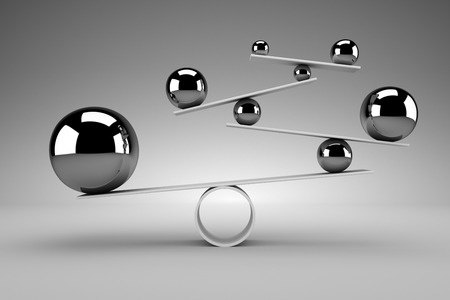Why Finding Your Flow May Be More Important Than Work-Life Balance
Named by psychologist Mihaly Csikszentmihalyi, the concept of “flow” has existed for thousands of years in different forms. When you are in the flow, you are fully immersed and energized by what you are doing. In sports, performing at that point where natural skills and peak performance align is called “being in the zone.” And in ancient Chinese philosophy, when your body is in harmony between opposing Yin and Yang forces, you have an optimal flow of the vital energy called “Qi.”
When you find your flow—whether it’s mental, emotional, or physical—you are aligning your signature strengths with everyday challenges. And out of that, a work-life balance naturally emerges. Flow anchors your optimal state. It makes no judgment on your priorities. Your goal in finding your flow is authenticity. Your heart needs to feel nourished, and your body energized. Without finding your flow, a work-life balance may seem elusive. That’s because there is no ideal, one-size-fits-all work-life balance—where the pendulum falls is different for each of us.
Finding Your Flow

Finding your flow emotionally, mentally, and physically involves balancing resources with challenges
Copyright: ssilver / 123RF Stock Photo
Flow has many dimensions. When our minds are in flow, the stress that we take on matches our resilience. Doing our best work becomes effortless. When our bodies are in flow, our interdependent biologic pathways are in balance. This state of dynamic equilibrium, called homeostasis, allows our body to flourish. Each time we tilt this delicate balance between our resources and demands, we leave an indelible, silent mark. The cumulative toll is unhappiness and a slow progression towards common chronic diseases and premature aging.
How can you find your flow? Ask yourself the following questions:
1) Are you happy or do you feel depleted? There is a tug of war between our innate needs for nurturing and autonomy. Often, we lose the balance between doing for others and doing for ourselves. It’s easy to spend an entire day responding to requests. Do you set aside time for yourself and your goals? Without doing so, you can feel a loss of control over your day, and if perpetual, over the direction of your life. Overly compromising your autonomy to keep your relationships healthy can undermine your happiness. If you feel depleted, start the day thinking about your desires, and set aside a bit of time to do what sustains you. The more you do this for yourself, the more you will have to give to others.
2) Do you feel stressed or welcome opportunity? Feeling productive, whether at work or home, is gratifying. But if you have taken on so much that you can’t satisfy your daily demands, you may become emotionally, mentally, and physically exhausted. It’s important to recognize when you are overwhelmed and take steps to reverse it. Determine which of your responsibilities are out of choice versus necessity. Which are energizing versus draining? Prioritize and work towards realigning your commitments.
3) Do you feel good or run-down all the time? The difference between surviving and feeling your best depends on maintaining harmony between many automatic processes in your body. Inflammation needed for healing wounds and fighting bacteria needs to be balanced, for example, with chronic inflammation that leads to disease. Necessary oxidative damage needs to be neutralized by antioxidants that contain excessive damage. Our “fight-or-flight” response needs to be offset by our “rest-and-digest” nervous system. Bad gut bacteria need to be counterbalanced with good bacteria. All too often, we live out of homeostatic balance—expecting our bodies to perform beyond our hard-wired limits. Even if you haven’t been diagnosed with an illness, feeling lousy is your body protesting that you are out of flow. It’s a wake-up call to adjust your lifestyle—by eating healthy, exercising, and sleeping—to restore your inner harmony.